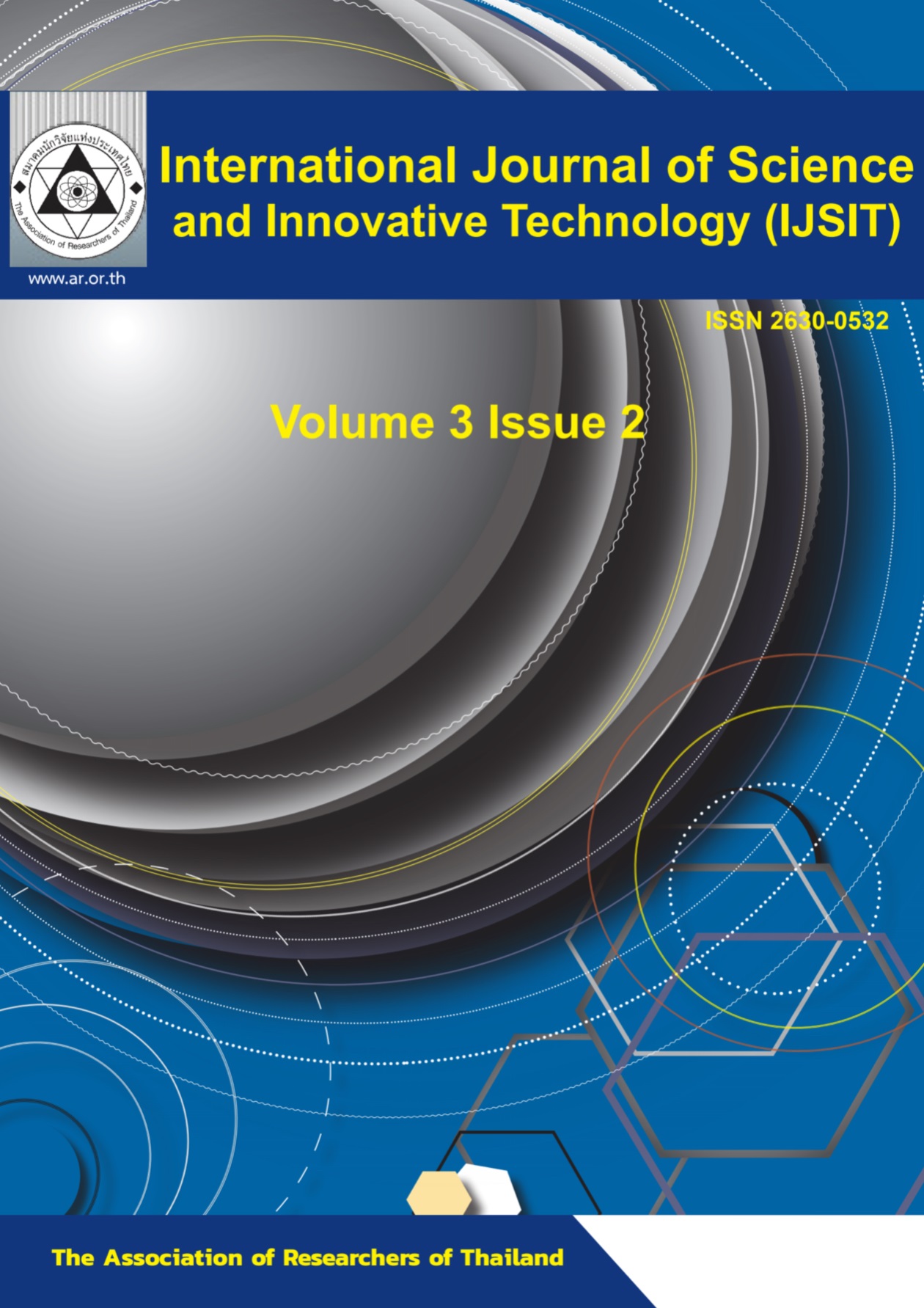The development in the innovation of the research-based instruction model in the curriculum development course for students of the teaching profession
Main Article Content
Abstract
The R&D research is aimed to: develop an instructional model: curriculum development course by using research- based learning for pre-service teachers. The four steps taken were 1) analyzing, 2) designing and developing, 3) trial, and 4) evaluation. The samples were 60 Thai -major students in the 1st year students from the Faculty of Education, Chaiyaphum Rajabhat University, while enrolled in the second semester of the academic year 2020 who were selected by using multistage random sampling.The research instrument were: 1)a curriculum development knowledge test; 2)an ability evaluation test on the performance of curriculum development. The statistics for the data analysis were percentages, mean, standard deviation, t-test dependent, and content analysis.
The results of this research were as follows:
- 1. The development of instructional model.The ALDRE Model which comprised : 1)Analyze needs for learning, 2)Learning planning, 3) Develop learning skill, 4) Reflect & knowledge summary and 5)Evaluate & apply. The result of the efficient criterion was 56/81.86
- 2. The differences of students’ learning outcomes of students’ knowledge before and after being taught by this model were statistically significant at the .01 level. The students’learning outcomes after instruction were higher than before the instruction.
- 3. The students’ ability in project work as a whole is at a high level.
Article Details
References
Ministry of Education. (2002). Research for Learning. Bangkok: Council Printing House, Lat Phrao.
Faculty of Education, Chaiyaphum Rajabhat University(2019), Bachelor of Education program, Faculty of Education, Chaiyaphum Rajabhat University.
Tissana Khammanee. (2012). Teaching Science. (15thEdition). Bangkok: Chulalongkorn University
Press.
Paitoon Sinlarat. (2004). Research-based learning. (3rdEdition). Bangkok: Faculty of Education,
Chulalongkorn University.(2014).Principles and techniques of teaching in higher education.
(4th Edition). Bangkok: V. Print (1991) Company Limited.
Mariam Nilphan. (2006). Research Methods in Behavioral and Social Sciences. 2nd edition
Nakhon Pathom: Project for Promoting Textbook Production and Teaching
Material, Faculty of Education Silpakorn University
Wichai Wongyai. (1980). Curriculum development and new dimension teaching. Bangkok:
Roongrueangtham (1994). Curriculum and instructional process development,
Bangkok. : Suwiya Sarasan.
Somwang Phithiyanuwat and Tassanee Boonterm. Research Based Learning. Journal of
Research Methodology 6 (January-June 1994): 1-14.
Biggs, J. B. and Collis, K. (1982). Evaluating the Quality of Learning: the SOLOtaxonomy.New York, Academic Press.
Biggs, J. (1999). Teaching for Quality Learning at University. Buckingham, UK: SRHE and
Open. University Press.
Joyce, B. and Weil, M. (1996). Models of teaching (5th ed.). London :Allyn and Bacon.
Kember, David. (2005). Best practice in outcome-based teaching and learning at the Chinese University of Hong Kong. Available from https://www.cuhk.edu.hk/.../teaching/bestteaching-practice 13, 14.
Oliva. P.F. (1992). Developing the Curriculum. 3rded. New York : HarperCollins.
Ornstein, A and Hunkins, F. (1998). Curriculum: Foundations, Principles and Issues. Boston: Allyn &Bacon.
Osborne, R. and Wittrock, M. (1983). Learning Science: A Generative Process, Science
Education, 67 (4).: 489-508.
Saylor. J Galen and William, M. Alexander. (1981). Planning curriculum for schools.
New York : Hott, Rinehart and Winston,
Taba, H. (1962). Curriculum development; Theory and practice. New York: Harcourt, Brace
AndWorld,
Tyler, Ralph W. (1949). Basic principle of curriculum and instruction. Chicago: University of Chicago Press,


